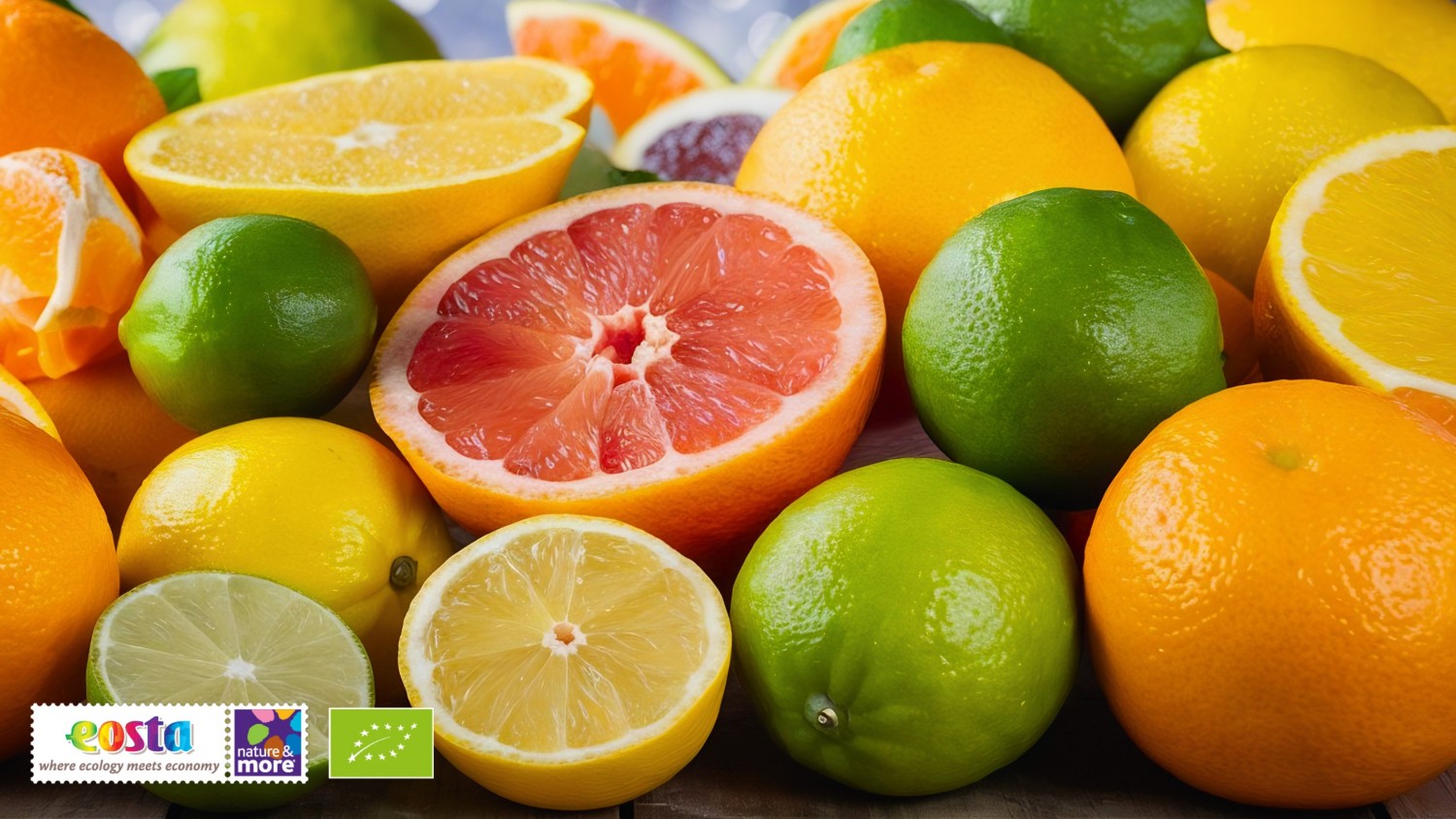
Overseas bio citrus 2025: opportunities and shortages
The overseas supply of organic citrus has started. Lemons, mandarins and grapefruits are already on their way to Europe. The first South African oranges are expected from week 25-26. To bridge the gap, Eosta is currently supplying Egyptian Valencia. To ensure sufficient supply, organic Valencia's from Latin America will also follow from mid-July for the first time.
Limited supply
Expectations for overall volume are mixed. Lemons and tangerines are slightly below last year's levels. Similar volumes are expected for grapefruits. For oranges - especially Navels - supply is significantly lower. The loss of a large grower is expected to reduce volumes by 20-30%.
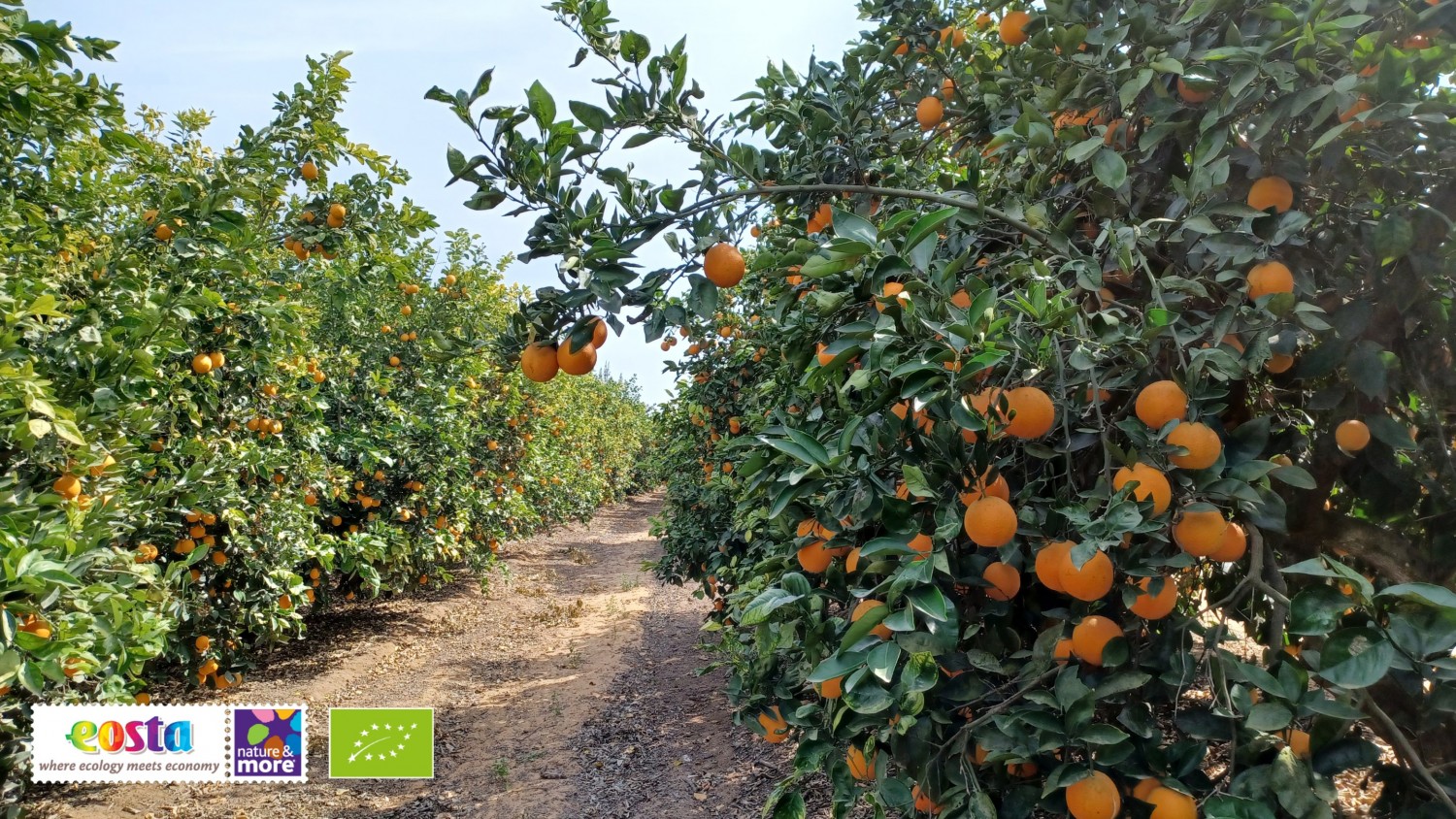
Quality and price expectations
Early fruit quality is good. For lemons in particular, the transition to the overseas season is expected to be smooth, partly due to weather problems with late varieties in Spain. The orange season is off to a tight start, likely leading to higher opening prices. Grapefruits and mandarins remain smaller niches within the citrus range, with stable volumes and market prices. 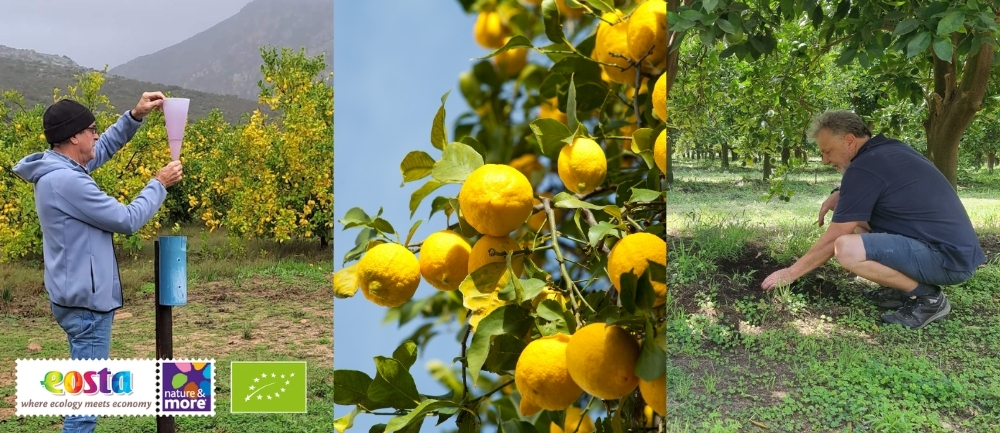
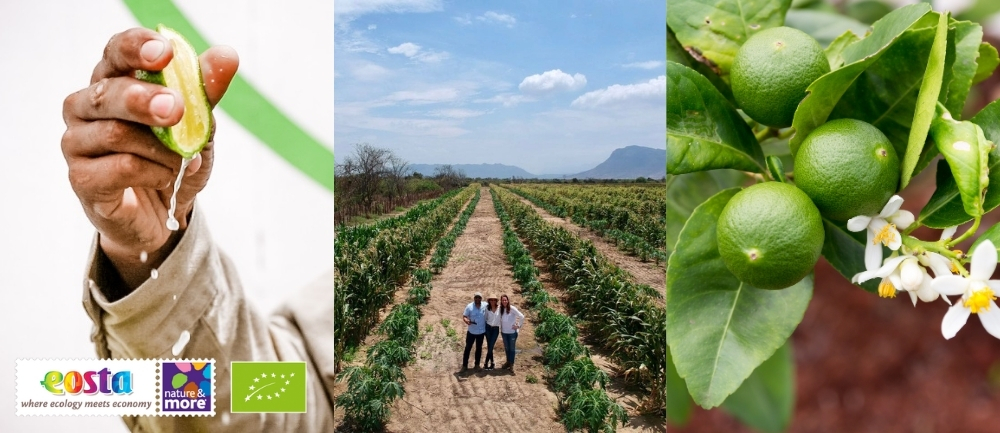
Organic citrus on the move
The global cultivation of organic citrus is still limited: only 3.3% of the total area was organic by 2022, despite a 42% growth in 10 years. As a result, the market is fragile.
At the same time, interest in organic citrus is growing rapidly. Supermarkets are offering a wider organic range, consumers are increasingly choosing organic, and we are seeing more and more organic oranges at the juicers on the shop floor - an opportunity for further growth.
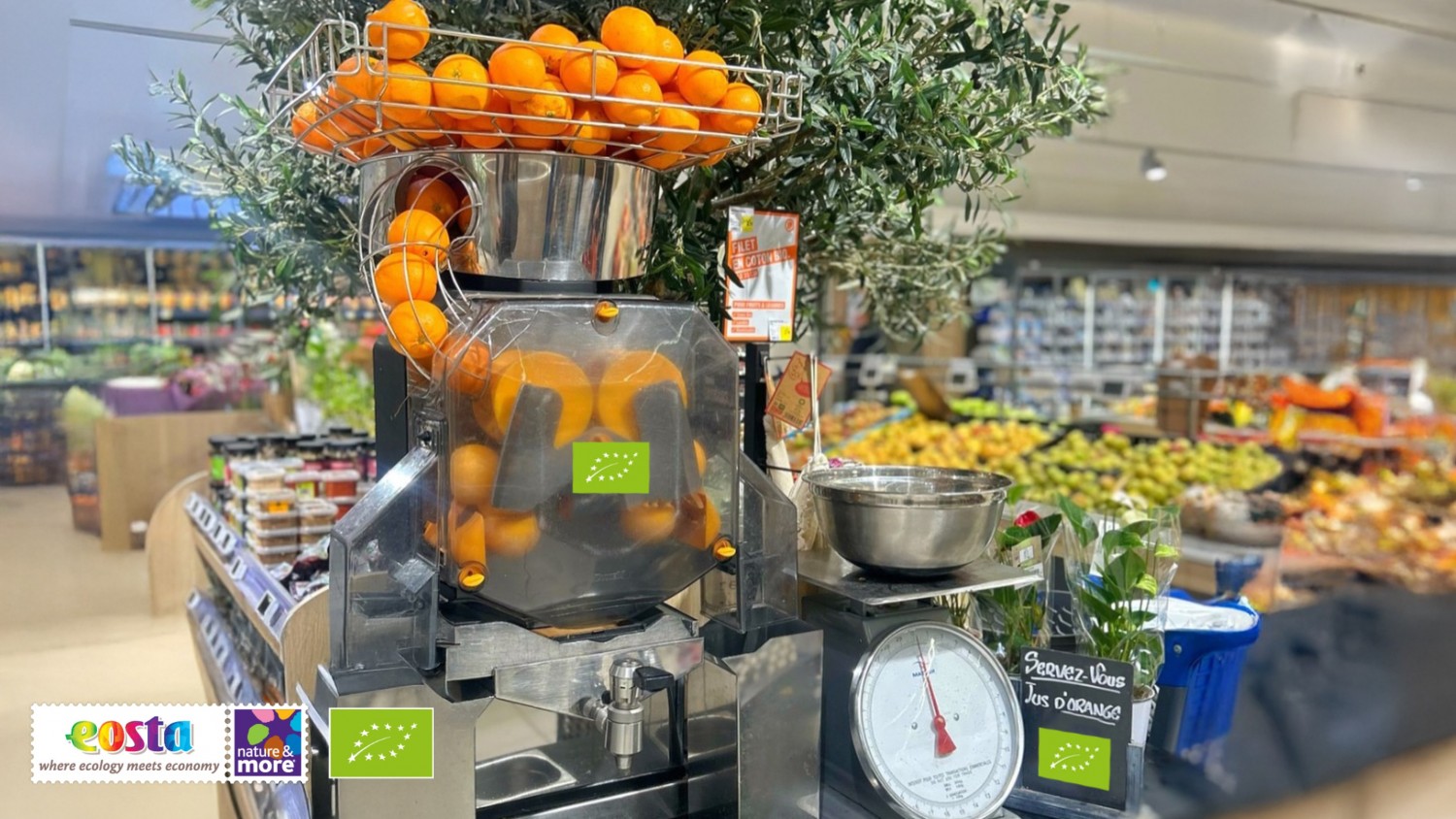
Eosta is actively responding to this with long-term partnerships with organic growers since 1990 and a wide origination network in South Africa, Latin America and Egypt. This allows us to continue to provide reliable organic citrus even in a tight market. 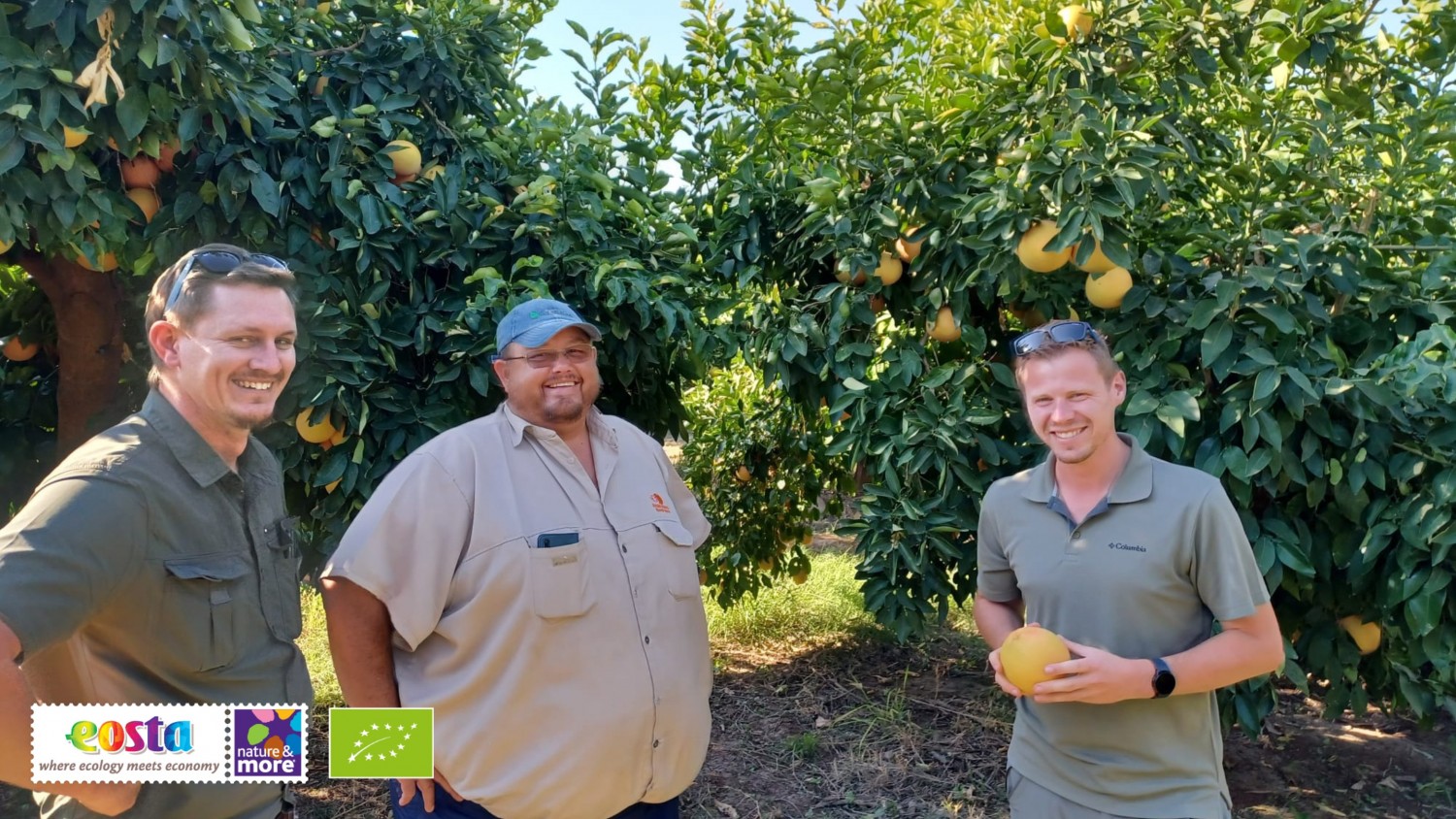
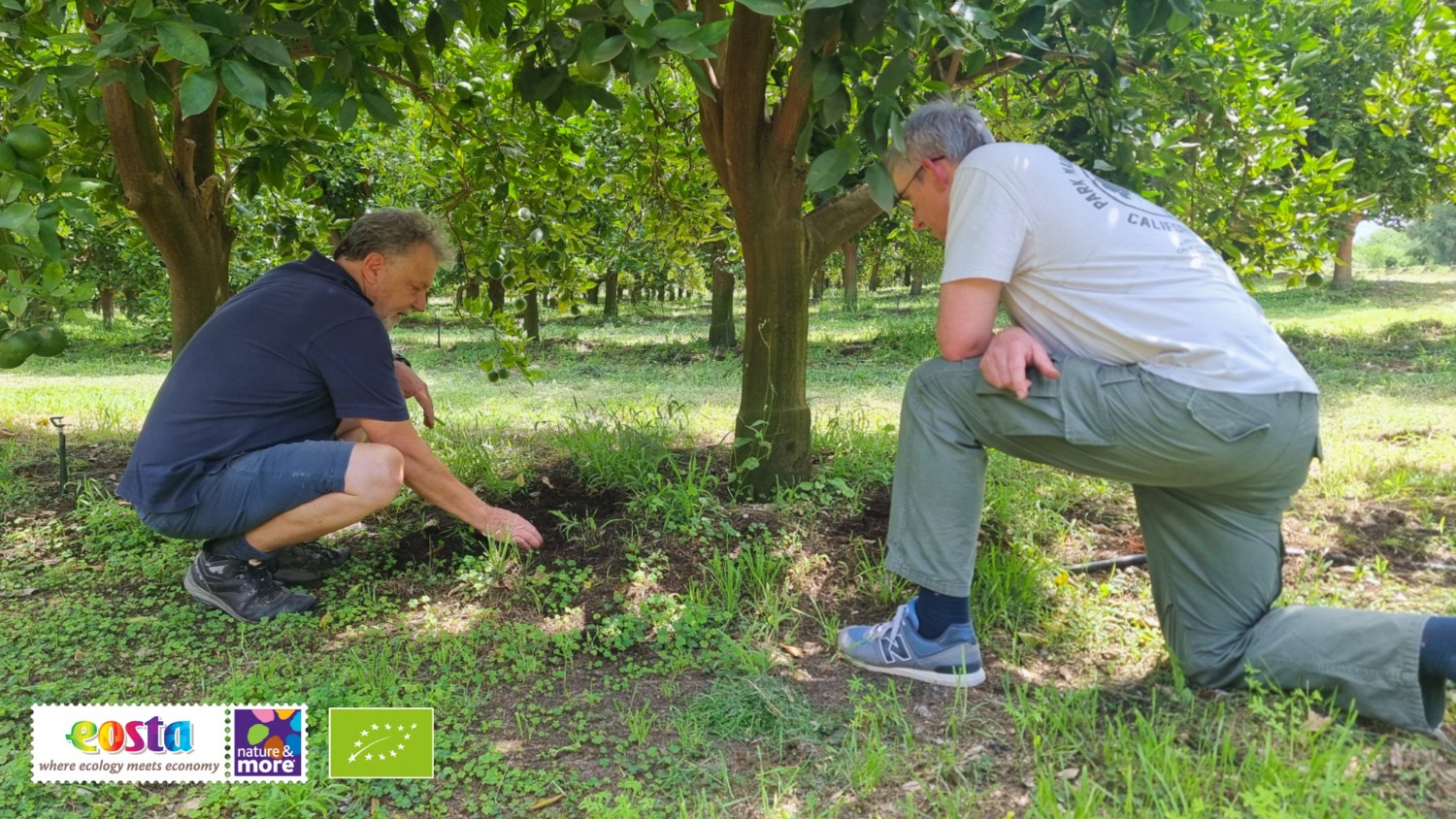
Sustainable from tree to plate
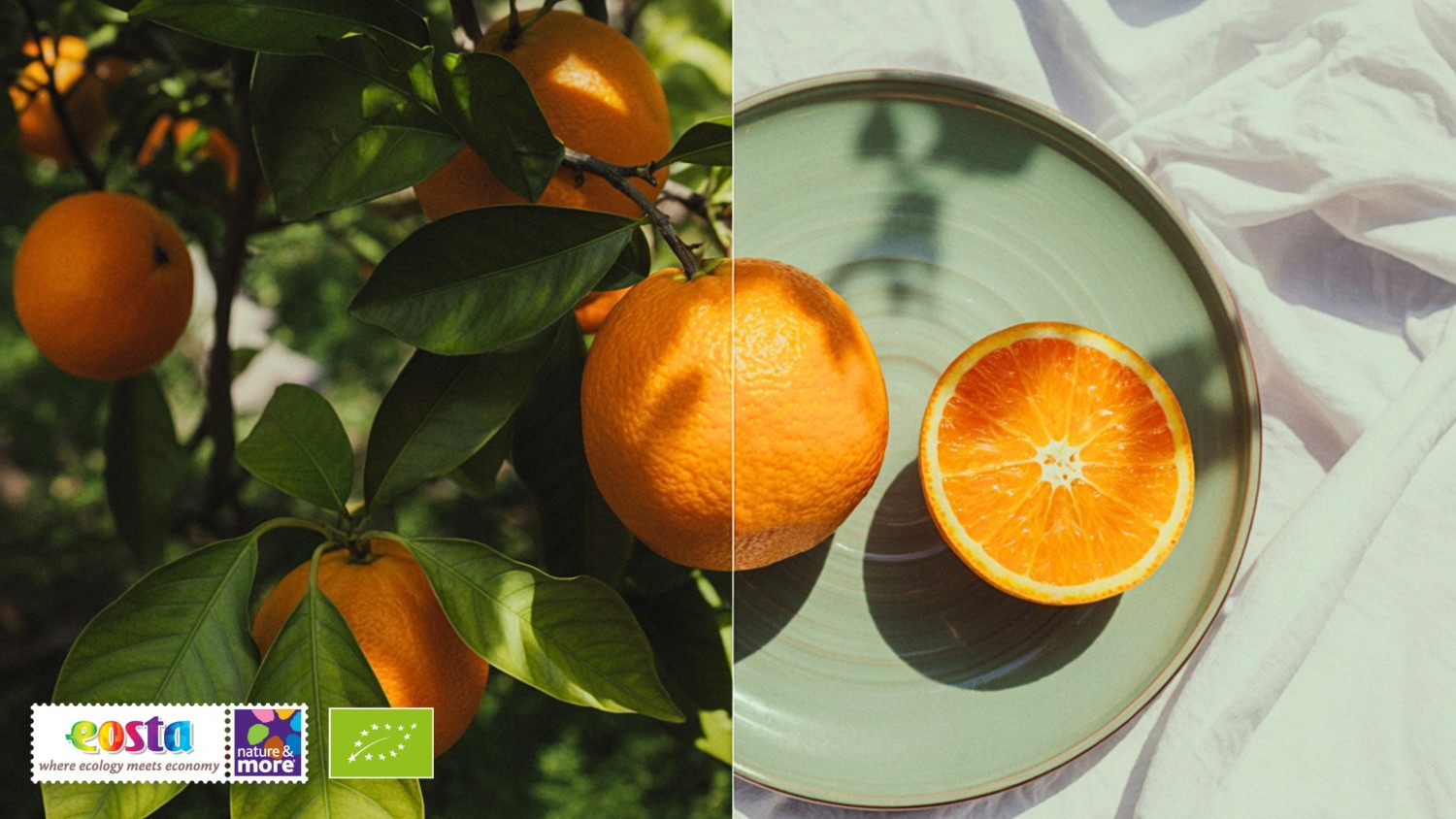
In South Africa, for example, growers work with their own compost, grazing and solar energy - as well as contributing locally to projects such as waste collection in villages.
Less water consumption thanks to organic cultivation
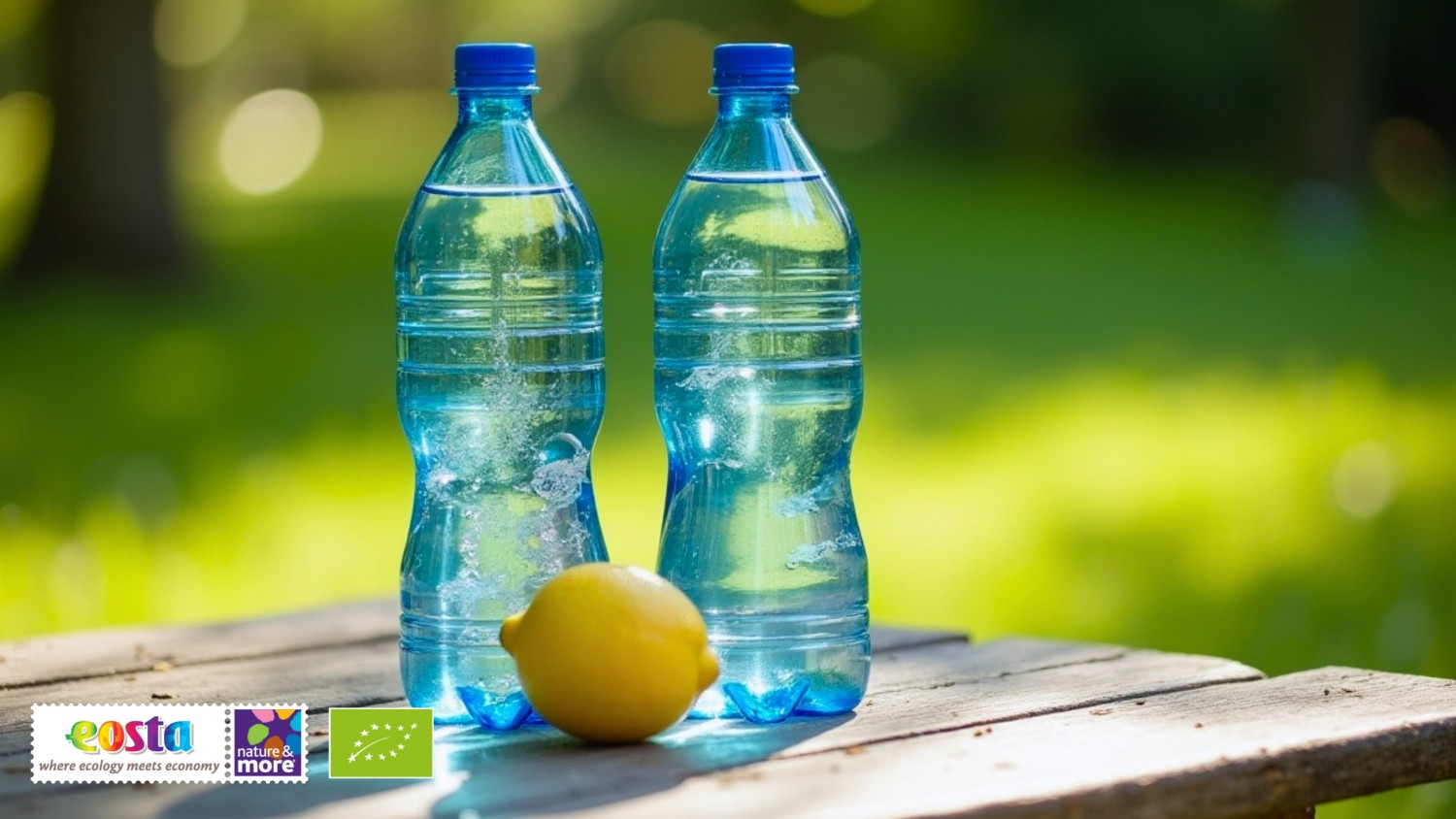
Organic lemons save an average of 2 litres of water each. If all lemons worldwide were grown organically by 2023/24, it would have saved 14 billion litres of water - enough for the daily drinking water needs of 190 million people. For oranges, grapefruits and mandarins, organic cultivation also saves water, thanks to healthier soils and more efficient water use.
Want to know more about our offer or plan a seasonal promotion?
Contact your Eosta account manager or email info@eosta.com - we'd love to think with you!



